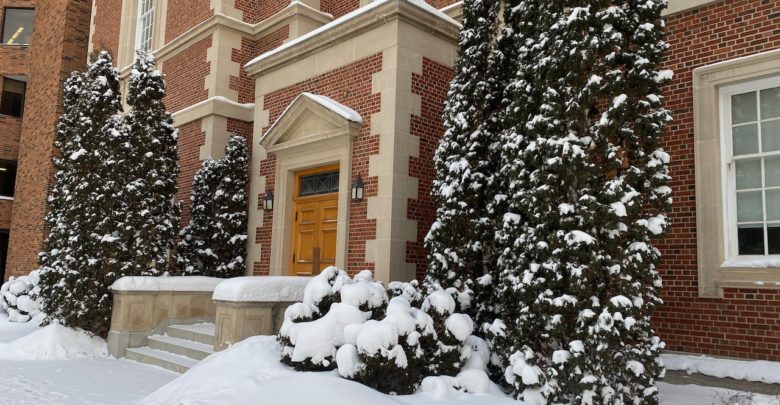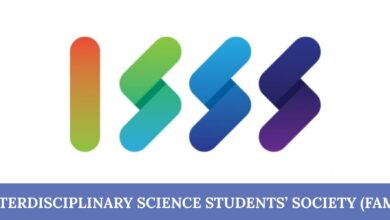U of A’s Sexual Violence Response Coordinator speaks on responsibilities of new role
As the Sexual Violence Response Coordinator, Deb Eerkes will look at how the U of A is responding to sexual violence disclosures and complaints.
 Emily Williams
Emily WilliamsTrigger Warning: This article discusses topics related to sexual assault and violence that some readers may find upsetting. Resources are available at the end of the article.
After years of student advocacy, the University of Alberta has hired a Sexual Violence Response Coordinator to address systematic issues relating to sexual violence.
On November 17 student representatives wrote a joint letter to the University of Alberta demanding stronger action against sexual violence and misconduct. These demands were set out with the protection of both the student body and faculty in mind. One demand was the demand to hire a Sexual Violence Prevention and Response Coordinator.
After over five years of advocacy from the student body, the U of A has hired Deb Eerkes as the Sexual Violence Response Coordinator.
While the student demands listed a “prevention and response coordinator” Eerkes made the distinction that her exact title is Sexual Violence Response Coordinator — the position title does not include the word prevention. This is not indicative to her role, just the specifics of her job title.
As the Sexual Violence Response Coordinator, Eerkes will look at how the U of A is responding to sexual violence disclosures and complaints. This is to help develop a better system that prioritizes the academic needs of those involved.
This position seeks to implement trauma-informed practices while investigating situations and “making sure that our response is grounded in the academic mission of the institution, and not in trying to punish bad people.”
Eerkes mentioned wanting to provide response education to both faculty and students to assist in responding to survivors of sexual violence; the goal of this is to have people aware of the resources available to them.
“We want everyone to know what to say, or to know who to call in that moment.”
Eerkes started at the University of Alberta in 1999 as a student ombudsman. Throughout her position, she frequently came across students dealing with sexual violence allegations or survivors disclosing their experiences not knowing the options available. Eerkes then progressed at the university to the position of a discipline officer.
“I realized it was not a supportive way to deal with sexual violence; it didn’t prevent sexual violence — it didn’t even respond to it very well, and it was traumatizing for everyone,” Eerkes stated when reflecting on both positions.
“We all knew this was not the best way to handle sexual violence.”
Later on, Eerkes became the U of A’s director of student conduct and accountability. Through this position, Eerkes was able to conduct a review on the university’s response to sexual violence. With this review came the suggestion of restorative justice. Eerkes then analyzed how this process could be implemented structurally.
Eerkes also participated in the Courage to Act Project, a federally funded project that analyzes gender-based violence on campuses across Canada to develop systematic changes, ensuring that all students have access to a safe academic setting.
“How can we do this in a way that is procedurally fair, trauma informed, and to reduce the harm that we are ultimately causing by ourselves in our own processes?”
The roles of a Sexual Violence Response Coordinator include looking into the human experiences that are intertwined with sexual violence.
“We were treating this like a crime, and it is, but that’s actually not our job.”
The purpose of the position is to have a direct avenue for dealing with complaints and disclosures related to sexual violence in order to provide a safe working and learning environment at the U of A.
“Our goal is about safety, and access, and equity.”
Eerkes mentioned wanting to hear more from people at the university who have had to deal with the system itself, particularly any challenges that have been encountered during the process of filing a complaint or disclosure. This is to help identify any current barriers in order to help re-work the current system from the inside out.
Eerkes identified the distinction between disclosures and complaints as two separate options that require different responses. With this distinction, Eerkes hopes to educate more people about the options available and make the resources more accessible to those who need them.
“I don’t expect everybody to know it all, I just want them to know where to look it up.”
Eerkes plans on working closely with the U of A Sexual Assault Centre to assist in understanding the barriers survivors may face with the universities current system regarding sexual violence.
For long-term goals, Eerkes is predominantly focused on reviewing the current policies and procedures to ensure that they are effectively serving the community, as well as providing resource education to faculty and students. She also mentioned wanting to expand the amount of options that are available to survivors who have experienced sexual violence.
“We are required to provide a safe and harassment-free environment.”
Eerkes wants to provide that by implementing a restorative justice approach that gives space for accountability while ensuring that the university’s academic mission is upheld.
“We are not trying to weed out just one bad apple; the bad apple theory doesn’t work. What we are trying to do is create an environment where people are not discriminated against.”
The position of the Sexual Violence Response Coordinator at the U of A looks at sexual violence on campus from a systemic approach to produce a safe, equitable environment that prioritizes the university’s involvement as an academic institution rather than enforcing the law.
“I am not going to be dealing with, and I’m not allowed to intervene on individual cases. My job is absolutely at the systemic level. So I know people are going to want to contact me and go ‘can you fix what happened to me?’ and I can’t, but I do want to learn from people if they’ve encountered barriers.”
For crisis support during The Sexual Assault Centre’s operating hours, visit 2-705 SUB, phone 780-492-9771, or email [email protected].
The Sexual Assault Centre of Edmonton‘s Support and Information Line is available from 9 a.m. to 9 p.m., seven days a week, 365 days a year.
Alberta’s One Line for sexual violence is a toll-free phone, text, and chat service, private and available throughout Alberta from 9 a.m. to 9 p.m. daily. Call or text 1-866-403-8000.
The Central Alberta Sexual Assault Support Centre provides phone and text support outside of these hours at 1-866-956-1099.




